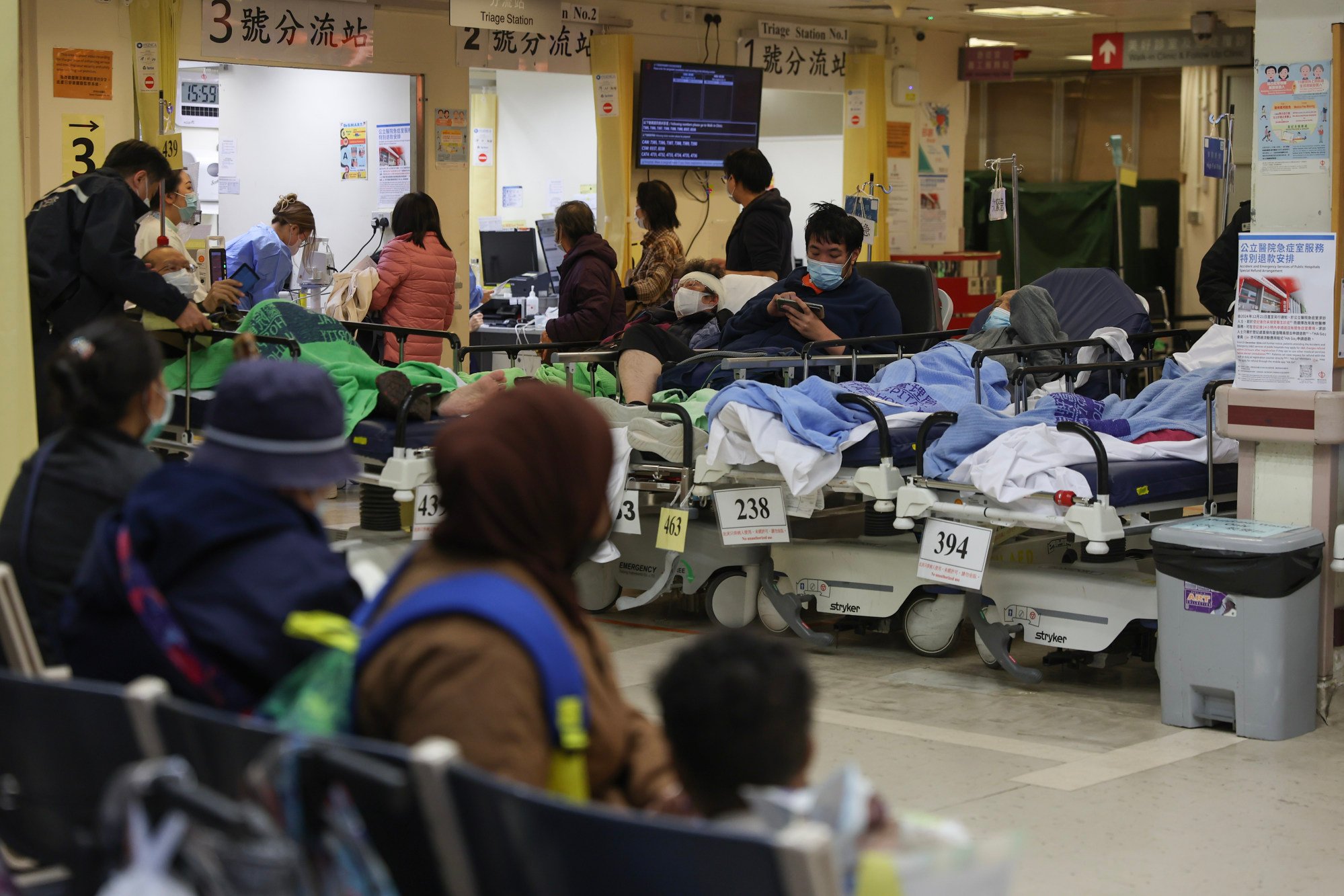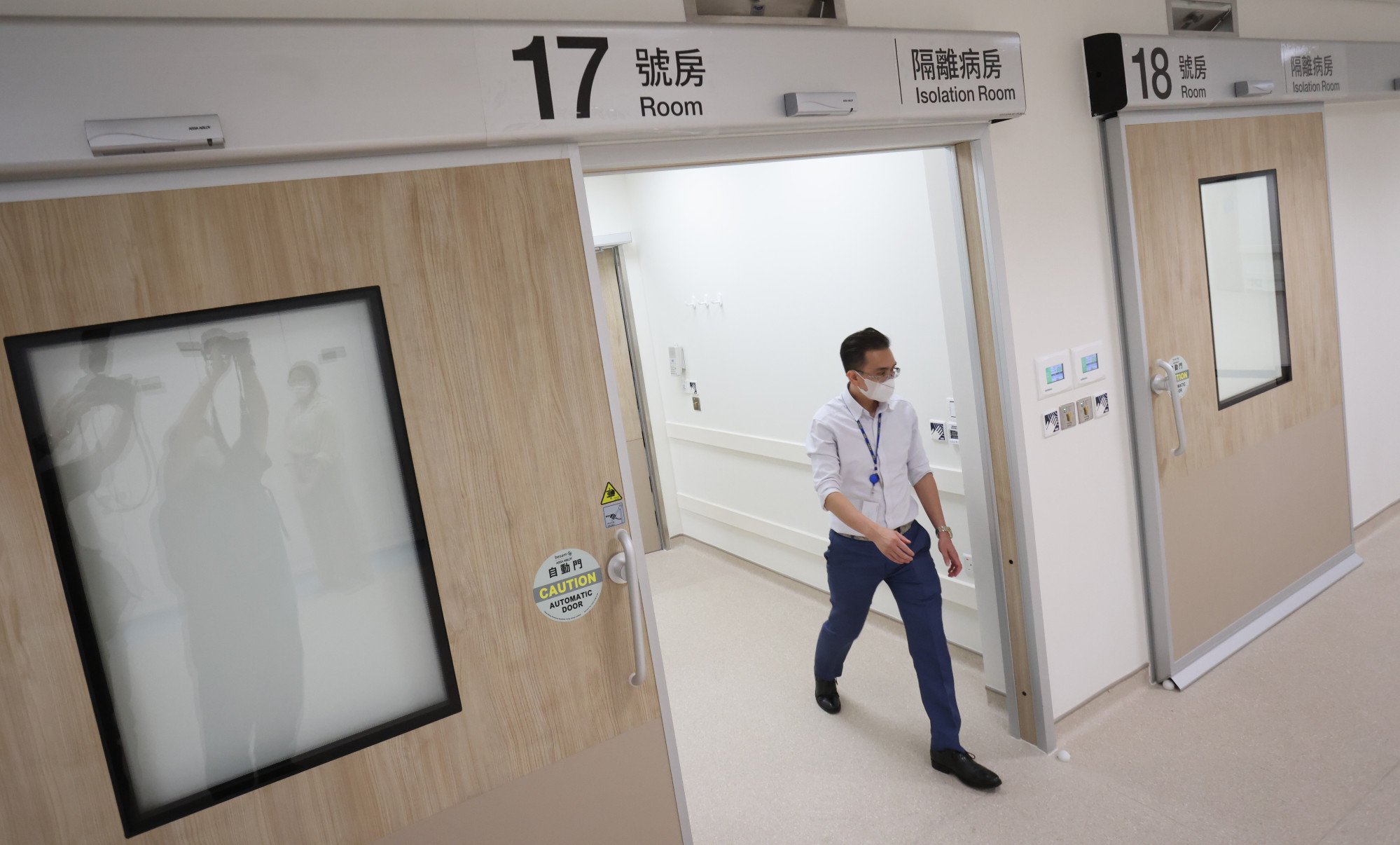
The number of doctors and nurses at Hong Kong public hospitals facing disciplinary action rose between 2021 and last year, while the volume of complaints filed to healthcare facilities increased before declining slightly during the same period.
A written reply from the Health Bureau to the Legislative Council’s Finance Committee on Wednesday showed that the number of disciplinary actions taken by the Hospital Authority against health professionals increased from 150 in the 2021-22 financial year, dipped to 132 in 2022-23 and rose again to 201 in 2023-24.
The authority oversees Hong Kong’s public hospitals.
Do you have questions about the biggest topics and trends from around the world? Get the answers with SCMP Knowledge, our new platform of curated content with explainers, FAQs, analyses and infographics brought to you by our award-winning team.
But a breakdown of the figures showed instances of disciplinary action against doctors and nurses had consistently increased over the same period.
The number of disciplinary actions taken against doctors stood at 14 in 2021-22, 21 in 2022-23 and 33 in 2023-24. For nurses, the figure rose from 96 to 101, before increasing to 145.
In terms of allied health professionals, such as physiotherapists or occupational therapists, the tally went from 40 and dropped to 10 before increasing slightly to 23.
“Disciplinary actions taken in the past were not confined to cases relating to medical complaints or claims,” the bureau said, adding that such measures had included verbal or written warnings, counselling and dismissal in cases of gross misconduct.
Health authorities stopped short of outlining the reasons for the disciplinary actions.
But a source said most of the cases were due to “criminal-related” offences, including arrests made during the 2019 anti-government protests.

The insider added that the increase in staff over the past few years also meant there was a higher chance of people committing wrongdoings that warranted disciplinary actions.
The number of staff working for the authority gradually increased from 89,812 in 2021-22 to 90,785 in 2023-24.
The bureau’s reply to the inquiry from medical and health services sector lawmaker David Lam Tzit-yuen also outlined the number of complaints received by public hospitals.
According to the data, the number of complaints in 2021-22 stood at 1,610, before increasing to 2,162 in 2022-23 and falling slightly to 2,097 the year after.
The authority did not keep records concerning how many of the complaints during that period had been substantiated.
But official figures showed that among the 419 complaints recorded between January and March 2024, 25 cases were substantiated and 30 were partially substantiated.
Public hospitals are currently undergoing reforms to reduce the likelihood of errors and increase efficiency, after a panel of experts shared a raft of recommendations last year in response to a series of medical blunders.
The recommendations included wider use of technology to help reduce errors at work.
Additional figures earlier published by health authorities showed that the number of “sentinel events” had decreased from 26 in 2021-22 to 19 in 2022-23 before rising to 29 in 2023-24.
The term refers to nine categories of errors, such as instruments or materials left inside patients, mix-ups involving the wrong cases or body parts, and medication errors.

Dr Herbert Kwok Wang-chun, vice-president of the Hong Kong Public Doctors’ Association, said the increase in cases of disciplinary action against doctors and nurses did not necessarily mean professional standards had fallen.
“After the Covid-19 epidemic, when the demand for services increased as more patients returned, the chances of [making mistakes] were higher,” Kwok said.
“I would not draw any conclusions that the quality of doctors has become worse.”
Kwok also discussed complaints against hospitals, saying that some might not be related to professional medical service standards.
“Some of those complaints could be about long waiting times for scans, and this is not about whether a doctor has done something wrong,” he said.
Lawmaker Lam said there was not enough data to determine what was behind the rise in disciplinary action against doctors and nurses, arguing it could reflect a more stringent adherence to or tightening of protocol or a “genuine increase in the incidence of breach”.
Tse Kin-keung, chairman of the Association of Hong Kong Nursing Staff, said insufficient manpower at public hospitals could also affect the service quality and prompt complaints from patients.
“When the workload is heavy and there are lots of patients, mistakes made by staff could be possible,” he said.
Alongside using technology to increase efficiency, frontline staff should take extra care and adhere to protocol to reduce the likelihood of mistakes, he added.
More from South China Morning Post:
- Hong Kong’s Hospital Authority to adopt 6 measures to reduce human error
- 75-year-old patient dies after dietary blunder in Hong Kong hospital
For the latest news from the South China Morning Post download our mobile app. Copyright 2025.










































